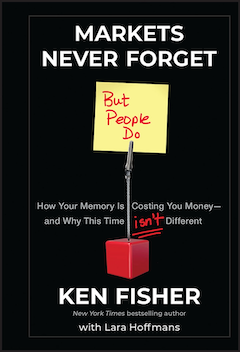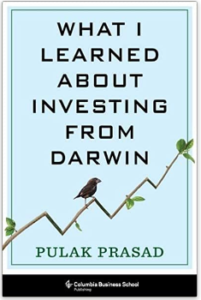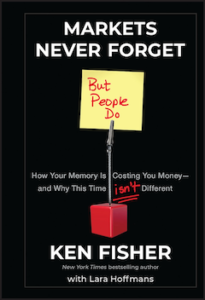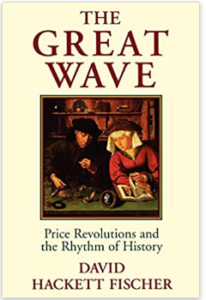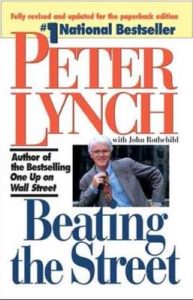By Margaret MacMillan, 2013 (784p.)
I tried another book on WW1 called Cataclysm: The First World War as Political Tragedy (2005) that I wasn’t able to finish. It was extremely tedious and too focused on the battles themselves, instead of explaining why they happened. I got far enough, though, to appreciate how little I knew about the first world war, which sent me searching for another title dedicated to the subject. One of the more famous ones is Barbara Tuchman’s The Guns of August: The Outbreak of World War I (1962), which some have credited with averting nuclear disaster in the Cuban Missile Crisis in October 1962. After reading some negative reviews and another one of Tuchman’s books (which I disliked), though, I decided to go for something more modern and less focused on war itself. This brought me to The War That Ended Peace: The Road to 1914 (2013), by decorated war historian Margaret MacMillan. At nearly 1000 pages, this wasn’t a quick read, but it was worth every page.
The book starts at the turn of the century and spends a lot of time establishing the zeitgeist of that special period of peace and prosperity. Zeitgeist means the “defining spirit” or mood of a particular period of history, and the mood then was one of optimism and hubris. Queen Victoria of England had family ties with Russians and Prussians, and she was the grandmother of Kaiser Wilhelm II, the supreme ruler of a relatively new Germany (as we know it), who many blamed for causing the war. Indeed, the Kaiser was an egomaniac who suffered from imperial envy, and he despised his British relatives – but he was hardly the only one to blame for the widespread bloodshed that took place between 1914 and 1918. As MacMillan makes clear throughout the book, a long period of peace had inspired a thirst for war, and a generation that forgot that wars can be long and painful. Every country, including ones that had clear disadvantages, such as Belgium and Serbia, was confident that they can win any war that came their way. That the assassination of Arch Duke Ferdinand sparked the war is a part of the story that the book only reaches towards the end. By that point, and by MacMillan’s thesis, war was already practically inevitable – although in the end she concludes it wasn’t.
As with many great books, the War that Ended Peace gets better towards the end, after all the context is built. Below I share some of my excerpts from this masterpiece, and most were from the final chapters. Yes I would highly recommend this book to people who feel like I felt before reading it – which was curious to learn more about WW1. But even if the topic is not your favorite, the central message of the book is worth reiterating and assimilating: zeitgeist matters. On this front, I Googled “What is the current zeitgeist 2022.” Of the 2.4 million results, the one at the very top is a video interview from Dec 2021 with a “zeitgeist analyst” (Marian Salzman) who predicted that 2022 will be the year of “chaos and muted hedonism” (link). Not sure that would be my call, but its interesting anyway that this was the top hit on Google. Its also interesting that during the early 1900s, known as the Edwardian era (link), or the “romantic golden age,” few were predicting chaos and muted hedonism.

In closing – yes, it’s a great book, and yes, these are interesting times. It only hit me days after I finished the book, but the appetite for war is much lower these days than it was in those times of peace. As terrible as it sounds, it’s war itself that keeps war from happening, and all we can do is pray that they don’t come washing up our shores or knocking down our buildings. The final sentence of the epilogue was my favorite: “… if we want to point fingers from the twenty-first century we can accuse those who took Europe into war of two things. First, a failure of imagination in not seeing how destructive such a conflict would be and second, their lack of courage to stand up to those who said there was no choice left but to go to war. There are always choices.”
Regards,
Adriano
MY HIGHLIGHTED EXCERPTS
Introduction: War or Peace?
The creation of Germany in 1871 had suddenly presented Europe with a new great power at its heart.
Bankers warned that even if a general war were to start, it would grind to a halt after a few weeks simply because there would be no way of financing it.
This book traces Europe’s path to 1914 and picks out those turning points when its options narrowed.
The search will probably never end and I will myself argue that some powers and their leaders were more culpable than others. Austria- Hungary’s mad determination to destroy Serbia in 1914, Germany’s decision to back it to the hilt, Russia’s impatience to mobilize, these all seem to me to bear the greatest responsibility for the outbreak of the war.
A family wedding in Coburg in 1894 shows the many connections that linked the European royal families. Most of those present were related to Queen Victoria, seated in the front dressed in her customary black. Her grandson Wilhelm II, the ruler of Germany, is on the left and behind him, his cousin Nicholas, about to become the Tsar of Russia. Victoria’s son the future Edward VII is just behind the latter while the future Tsarina, Alexandra, stands between Wilhelm and Victoria.
1. Europe in 1900
Stefan Zweig, who was nineteen in 1900, has left a picture of his carefree youth. His family was prosperous and indulgent and let him do whatever he pleased at the university in Vienna. He did a minimum of academic work but read widely. He was just starting on his career as a writer, publishing early poems and his first articles. In the last thing he ever wrote, The World of Yesterday, he chose to call the time of his youth before the Great War “the Golden Age of Security.”
In 1800 before the gap in power opened up, Europe had controlled approximately 35 percent of the world; by 1914 that figure was 84 percent.
“The history of mankind is part and parcel of the history of nature,” wrote Edward Tylor, who was one of the fathers of modern anthropology, “and our thoughts, wills, and actions accord with laws as definite as those which govern the motions of the waves, the combination of acids and bases, and the growth of plants and animals.”
Herbert Spencer, in his time the most widely read British philosopher, argued that the laws of evolution applied as much to human societies as they did to species.
By 1902, American plants produced more iron and steel than Germany and Great Britain together. American exports, from cigarettes to machinery, tripled between 1860 and 1900. By 1913 the United States had 11 percent of the world’s trade and that share was increasing annually.
As his daughter famously remarked: “My father always wanted to be the corpse at every funeral, the bride at every wedding, and the baby at every christening.” In September 1901, he became President when an anarchist shot President William McKinley. Roosevelt loved the office—“ the bully pulpit”— and took particular pleasure in managing American foreign policy.
2. Great Britain and Splendid Isolation
Grover Cleveland, President in the mid-1880s and then again between 1893 and 1897, and a leading opponent of the United States acquiring colonies, famously said in his first inaugural address that his country would remain true to its revolutionary origins and that it had no ambitions towards other continents.
Highlight (yellow) – Page 95
Salisbury stopped objecting to the American extension of the Monroe Doctrine and some minor changes were made to the border in an arbitration in 1899. Venezuela, which the American ambassador in London dismissed as “a mongrel state,” got very little. (The Venezuelan President Hugo Chávez claimed the disputed land until his death, and his successors continue to do so.)
In January 1901, Queen Victoria died, perhaps another sign that the old order was passing.
4. Weltpolitik: Germany’s Place on the World Stage
In 1890 Captain Alfred Mahan published his classic work, The Influence of Sea Power upon History.
5. Dreadnought: The Anglo-German Naval Rivalry
Some 90 percent of all central government spending went on the army and navy and in the twelve years between 1896 and 1908, thanks in large part to naval spending, the total expenditure on the military had doubled and was going up for the foreseeable future.
7. The Bear and the Whale: Russia and Great Britain
By 1914 the best-organized party, the Bolsheviks, dominated most of the unions and held the majority of the seats for workers in the Duma, the new Russian parliament.
As Russia became a major exporter, especially in food, the passage from the Black Sea to the Mediterranean via the Bosphorus, the Sea of Marmara and the Dardanelles—known collectively at the time as “the Straits”—became particularly vital; 37 percent of all its exports and 75 percent of its crucial grain exports were flowing past Constantinople by 1914.
8. The Loyalty of the Nibelungs: The Dual Alliance of Austria-Hungary and Germany
The old restrictions which kept Jews out of certain professions had gone, for example, although a new and virulent anti-Semitism, sad to say, was to make its appearance in the years before 1914.
Austria-Hungary had no strong countervailing identity around which its citizens could rally since it was not so much a country as a collection of properties acquired by the Habsburgs over the previous millennium through skillful maneuvering, marriage and war.
The Habsburgs traced their descent back to Charlemagne but they first made their mark on the history of Europe when one of their number was elected Holy Roman Emperor. Over the succeeding centuries the family virtually made the title its own until it was finally abolished by Napoleon in 1806. The Habsburgs endured, however, and Emperor Franz of Austria, as he now was, lived to see the defeat of Napoleon and reigned until 1835, when he was succeeded by his gentle and simpleminded son, Ferdinand.
A single tax payment in Vienna went through the hands of twenty-seven different officials. In the Adriatic province of Dalmatia, a commission set up to report on ways to improve the bureaucracy discovered that the collection of direct taxes cost twice as much as it raised.
9. What Were They Thinking? Hopes, Fears, Ideas, and Unspoken Assumptions
The cubism of Picasso and Braque, the attempts of the Italian constructivists such as Balla to capture movement, the free-flowing dance of Isadora Duncan, the deeply erotic ballets staged by Diaghilev and danced by Nijinsky, or the novels of Marcel Proust, all in their own ways were acts of rebellion.
Each of the major powers had prolonged and serious political crises before the war, whether over the Irish question in Britain, the Dreyfus affair in France, the standoff between crown and parliament in Germany, the conflicts among nationalities in Austria-Hungary or the near revolution in Russia. War was sometimes seen as a way of getting beyond the divisions and the antipathies and perhaps it was. In 1914 in all the belligerent nations there was talk of the nation in arms, the Union Sacrée, the holy union where divisions, whether of class, region, ethnicity or religion, were forgotten and the nation came together in a spirit of unity and sacrifice.
Part of Nietzsche’s appeal was that it was easy to read a great deal into his work, and people including socialists, vegetarians, feminists, conservatives and, later, the Nazis did. Sadly, Nietzsche was not available to explain himself; he went mad in 1889 and died in 1900, the year of the Paris Exposition.
And homosexuality, it was suspected, was on the increase, particularly among the upper classes. That would surely undermine the family, one of the foundation stones of a strong state. Could homosexuals be loyal to the nation? Maximilian Harden, the journalist who destroyed the Kaiser’s close friend Philip Eulenburg, talked about how homosexuals tended to find each other out and form cliques. Like anarchists or Freemasons, their loyalties appeared to transcend borders. Such fears may help to explain why scandals involving homosexuals such as Oscar Wilde caused such widespread outrage and concern.
In the years before 1914 the eugenics movement, advocating the breeding and cultivation of human beings as if they were cattle or vegetables, also found considerable support among political and intellectual elites. In 1912, the First International Eugenics Conference took place in London; its honorary patrons included Winston Churchill, then First Lord of the Admiralty, Alexander Graham Bell, and the emeritus president of Harvard University Charles W. Eliot.
A new breed of politicians was going outside established parliamentary institutions to appeal to popular fears and prejudices and their populism, especially among the nationalist parties, frequently included anti-Semitism. The old hatred of Jews as the killers of Christ was now updated to portray Jews as aliens, whether by religion or blood, who did not belong with the French or the Austrian or the Russian people.
French academic studies purported to show that German men were more likely to be homosexual than the French. Almost all homosexuals, one such study offered as proof, loved Wagner.
Highlight (yellow) – Page 400
Yet militarism was a more general phenomenon across Europe and throughout societies. In Britain small children wore sailor suits and on the Continent schoolchildren frequently wore little uniforms; secondary schools and universities had cadet corps; and heads of state—except in republican France—normally dressed in military uniform. It is rare to see photographs of Franz Joseph, Nicholas II or Wilhelm II in civilian clothes. And their officials, many of whom had done military service in elite regiments, often followed suit. When he attended the Reichstag for the first time as Chancellor, Bethmann Hollweg was in a major’s uniform.90 A century later the only political leaders routinely appearing in uniform were military dictators such as Saddam Hussein and Muammar Gaddafi.
In 1911 Baden-Powell visited Russia to inspect them.
10. Dreaming of Peace
Highlight (yellow) – Page 422
Described by Stead as a man of “benevolent mien,”9 Bloch, who was born to a Jewish family in Russian Poland and later converted to Christianity, was the closest thing Russia had to a John D. Rockefeller or an Andrew Carnegie.
12. Making the Plans
His wife, a woman of strong character, stronger many said than Moltke himself, was a follower of Theosophy, that jumble of Eastern religion and spiritualism founded by Madame Blavatsky. In 1907 both Moltkes became disciples of the guru Rudolf Steiner, who talked about a new spiritual age dawning on the earth. (His Waldorf schools which stress developing the imagination and creativity still flourish today, much favored by the middle classes.)
In subsequent crises, over the Austrian annexation of Bosnia-Herzegovina in 1908, the second Morocco crisis in 1911, and the Balkan wars of 1912 and 1913 the German military leadership again considered preventive war but the Kaiser, who genuinely seems to have hoped to maintain the peace, refused to approve it.
What was generally accepted among the Russian leadership, however, was that any conflict in the Balkans could turn into general war.78
17. Preparing for War or Peace: Europe’s Last Months of Peace
Although France’s treaty with Russia was a defensive one, coming into effect only if either party was attacked, Poincaré went beyond its terms to suggest that France would feel obliged to enter a war even if Germany merely mobilized. By 1914, the alliances, rather than acting as brakes on their members, were too often pushing the accelerators.
Too many Europeans, especially those like Conrad in crucial posts such as the upper ranks of the military and the governments, were now waiting for war to come. The Russian general Brusilov made haste to go with his wife to their German spa in the summer of 1914: “I was absolutely certain that a World War would break out in 1915. We were therefore determined not to postpone our cure and rest, so as to be able to return home for the manoeuvres.”
18. Assassination at Sarajevo
Wilhelm was by no means alone in fearing the Slavic hordes sweeping westwards. He frequently sounded like right-wing politicians in the United Kingdom today worried about eastern Europeans storming British ports or conservative U.S. Republicans with similar worries about Mexicans. “I hate the Slavs,” he said to the military attaché from Austria-Hungary with a striking lack of tact, given the large numbers of Slavs living within the Dual Monarchy. “I know it’s a sin but I cannot help myself.” Serbia, he was fond of saying, was “the pig monarchy.”
They should have remembered that famous saying of Bismarck: “Preventive war is like committing suicide out of fear of death.”
Like the younger George Bush nearly a century later, who blamed his father for not finishing off Saddam Hussein while he had the chance, Wilhelm had always wanted to distinguish himself from a father he held to be weak and indecisive.
19. The End of the Concert of Europe: Austria-Hungary Declares War on Serbia
“England is sure to join us in the end,” he nevertheless assured a colleague in Paris, “but too late.”
In St. Petersburg, crowds, small at first but growing in size as the week went on, paraded carrying portraits of Tsar Nicholas and the national flag and singing “Save Thy people, Lord.”65 When Nicholas himself attended a local theater in Krasnoye Selo, the audience gave him several spontaneous standing ovations and army officers who were present broke into song.
The German plan, usually known as the Schlieffen, assumed that Germany would fight a two-front war against France and Russia. To knock its enemy in the west out quickly, the German military planned a quick advance into Belgium and northern France. Although Germany called on Belgium to let the German armies pass through peacefully, the Belgian government decided to resist. This both slowed down the German advance and, even more importantly, persuaded the British to enter the war to defend brave little Belgium.
Highlight (yellow) – Page 818
The talks between Russia and Austria-Hungary duly started on July 27 only to be broken off again the next day when Austria-Hungary, under pressure from Germany to move quickly, declared war on Serbia.
20. Turning Out the Lights: Europe’s Last Week of Peace
For Germany mobilization was not a diplomatic tool; it was war itself. Although Bethmann and the Kaiser had resisted the army pressures to set the process going, by July 31 the military were starting to take over. Bethmann accepted this shift in power with resignation; the representative of Saxony in Berlin reported him saying: “The control has slipped out of the hands of the responsible monarchs and statesmen so that the mad European war would happen without the rulers or their people wanting it.”
“In this great struggle it is of primary importance that Austria should mobilise her main forces against Russia and not fragment herself through any simultaneous offensive on Serbia.” And, the Kaiser went on, “Serbia plays, in this gigantic struggle where we stand shoulder to shoulder, a quite subsidiary role, requiring only a necessary minimum of defensive measures.”46 Conrad did not, however, redeploy his troops from south to north until August 4, a decision which was to lead to military disaster for Austria-Hungary.
Germans of all political persuasions were now ready to defend their homeland against the Russians who, at this point, were singled out as the main enemy.
With Germany’s decision to mobilize, three of the six great European powers had now begun their general mobilizations and were either already formally at war, as in Austria-Hungary’s case, or about to be so in the case of Russia and Germany. Of the remaining three, Italy was choosing neutrality, France had decided to ignore the German ultimatum and start its own general mobilization on August 2, and Britain still had not decided what to do.
One piece of bad news followed another. The City of London was panicking. The bank rate had doubled overnight and hundreds of people had queued in the courtyard of the Bank of England to change their paper notes for gold. The management of the Stock Exchange had decided to close until further notice (and it was to remain closed until the following January).
Sazonov replied each time that Russia was still willing to negotiate but that the orders could not be revoked. “I have,” he said, “no other reply to give you.” Pourtalès then drew a deep breath and said with difficulty, “In that case, sir, I am instructed by my Government to hand you this note.” With trembling hands he passed over the declaration of war and went to the window and wept. “I never could have believed,” he said to Sazonov, “that I should quit Petersburg under these conditions.” The two men embraced.
In the following days trains rumbled across the country gathering up France’s young men to take them to the frontiers. The general staff had feared that perhaps as many as 10 percent of the reserves would refuse the mobilization orders; less than 1.5 percent failed to show up.
Belgian public opinion, at least until 1914, had fixed on no single enemy, or friend. There was a long-standing resentment of Britain for leading the international campaign at the turn of the century against the hideous abuses of their avaricious King, Leopold II, in the Congo.
On July 31 the government ordered full mobilization of the Belgian army.
The Belgian flag flew everywhere and there was much talk of Belgium’s national pride. As the King himself said in his proclamation to the nation, “We refused to forfeit our honour.”78 It helped that Albert was widely respected. He was unlike his uncle, the late, unlamented, Leopold, in almost every respect: the new King was honest, lived modestly in domestic bliss with his German wife and three children, and loved reading and mountain climbing rather than teenage mistresses. When the King and Queen left the palace the following day for a special session of parliament, they were cheered by huge crowds. In the chamber the royal couple received a standing ovation; all the measures proposed by the government including war credits passed unanimously. The Socialist Party issued a statement to say that their members were defending themselves against “militarist barbarism” and fighting for liberty and democracy.
Lloyd George, who had played such a key role in swinging the Cabinet towards war, wrote to his wife in North Wales: “I am moving through a nightmare world these days. I have fought hard for peace & succeeded so far in keeping the Cabinet out of it but I am driven to the conclusion that if the small nationality of Belgium is attacked by Germany all my traditions & even prejudices will be engaged on the side of war. I am filled with horror at the prospect.”
Epilogue: The War
Winston Churchill was by no means alone in feeling exhilaration at the drama itself. “My darling one,” he wrote to his wife, “Everything tends towards catastrophe and collapse. I am interested, geared up and happy. Is it not horrible to be built like that?”
Most people, from those in command to the ordinary citizen, assumed that it would be short, like the Franco-Prussian War, for example, where it took the armies of the German alliance less than two months to force the surrender of France.
As Norman Angell, in his Great Illusion, warned, even if Europe was so foolish as to go to war, the resulting economic chaos and domestic misery would rapidly force the warring nations to negotiate a peace.
victory on the battlefield did not bring the end of the war.
Ernest Shackleton, the great polar explorer, set off for the Antarctic in the autumn of 1914. When he finally made his way back to the whaling station on South Georgia Island in spring of 1916 he reportedly asked who had won the European war and was amazed to be told that it was still going on.
By the time the war ended on November 11, 1918, sixty-five million men had fought and eight and a half million had been killed. Eight million were prisoners or simply missing. Twenty-one million had been wounded and that figure only included the wounds that could be measured; no one will ever know how many were damaged or destroyed psychologically. By comparison, 47,000 American soldiers were killed in Vietnam and 4,800 coalition troops in the invasion and occupation of Iraq.
As the war started Wilson tore himself from his wife’s deathbed to give a press conference at which he proclaimed the United States would remain neutral. “I want,” he said, “to have the pride of feeling that America, if nobody else, has her self-possession and stands ready with calmness of thought and steadiness of purpose to help the rest of the world.” It took German policies, or more specifically those of the high command, to goad Americans out of their neutrality. In 1917 the United States, infuriated by German submarine attacks on its shipping and by the news, which the British obligingly passed on to Washington, that Germany was trying to persuade Mexico and Japan to attack the United States, entered the war on the Allied side.
As Germany’s armies met defeat in the summer of 1918, the German public, which had been kept in the dark by Hindenburg and Ludendorff, who now dominated the civilian government, reacted angrily against the whole regime. For a time, as sailors and soldiers mutinied and workers’ councils seized control of local governments, it looked as though Germany might follow Russia’s path. A reluctant Kaiser was forced to abdicate at the start of November 1918 and a new republic was proclaimed by the socialists who, it turned out, managed to check the revolution.
New players from outside Europe were taking a greater part in world affairs. In the Far East, Japan had grown in both power and confidence and dominated its neighborhood. Across the Atlantic the United States was now a major world power, its industries and farms stimulated to even more growth by the war and with New York increasingly the center of world finance. Americans saw Europe as old, decadent and finished—and many Europeans agreed with them.
The Great War marked a break in Europe’s history. Before 1914, Europe for all its problems had hope that the world was becoming a better place and that human civilization was advancing. After 1918 that faith was no longer possible for Europeans. As they looked back at their lost world before the war, they could feel only a sense of loss and waste.
Conrad, the chief of staff of Austria-Hungary who had finally got Franz Joseph’s permission to marry Gina von Reininghaus in 1915, was dismissed by the new Emperor in 1917. After the war he and Gina lived simply in the Austrian mountains and he passed the time by studying English—his ninth language—going for walks with ex-King Ferdinand of Bulgaria and writing a huge self-justifying memoir in five volumes. (There was to be a flood of such memoirs in the 1920s as the key players tried to exonerate themselves and cast the blame on others for the war.)
Poincaré remained in office throughout the war to preside over France’s victory and the restoration to it of Alsace and Lorraine. His term as President ended in 1920 but he came back as Prime Minister twice in the 1920s. He retired because of ill health in the summer of 1929 but survived to see Hitler and the Nazis take power in 1933, dying the following year.
Dreyfus volunteered to fight in the army which had disgraced him when war broke out and served throughout; he died in 1935 and his funeral passed through the Place de la Concorde which was lined with troops.
Wilhelm survived for years, bombastic, bossy, and self-righteous to the last. During the war he had become “the Shadow Kaiser”; his generals did all in his name but paid him little attention in reality. Wilhelm set up his headquarters in the little Belgian town of Spa behind the lines on the Western Front and passed his days in a routine of early morning rides, a couple of hours’ work (which consisted largely of awarding decorations and sending telegrams of congratulation to his officers), visits to hospitals, sightseeing and walks in the afternoons, and then dinner with his generals and bed at eleven. He liked going close enough to the front to hear the gunfire and would proudly say back at Spa that he had been in the war. As Hitler would in a later war, he liked to dream about what he would do after the conflict had ended. Wilhelm was full of plans for encouraging motor racing and for reforming society in Berlin. There were to be no more parties in hotels; the aristocracy must all build their own palaces. As the war went on his staff noticed that he looked lined and was easily depressed. They took to keeping the increasingly bad news from him
Wilhelm’s first request when he arrived at the estate of a Dutch aristocrat who had agreed to take him in was “a cup of real good English tea.” In spite of pressure from the Allies, the Dutch refused to extradite him and he lived out his days in a small palace at Doorn. He kept himself busy by chopping down trees—20,000 by the end of the 1920s; writing his memoirs, which, not surprisingly, showed no remorse for the war or for the policies leading up to it; reading long extracts in English from P. G. Wodehouse to his staff; fulminating against the Weimar Republic, socialists and Jews; and blaming the German people for letting him down while still believing they would one day call him back.
Wilhelm welcomed the start of the Second World War and the string of early German victories with delight. He died on June 4, 1941, less than three weeks before Hitler invaded Russia, and is buried at Doorn. Was he to blame for the Great War? Was Tirpitz? Grey? Moltke? Berchtold? Poincaré? Or was no one to blame? Should we look instead at institutions or ideas? General staffs with too much power, absolutist governments, Social Darwinism, the cult of the offensive, nationalism?
if we want to point fingers from the twenty-first century we can accuse those who took Europe into war of two things. First, a failure of imagination in not seeing how destructive such a conflict would be and second, their lack of courage to stand up to those who said there was no choice left but to go to war. There are always choices.



